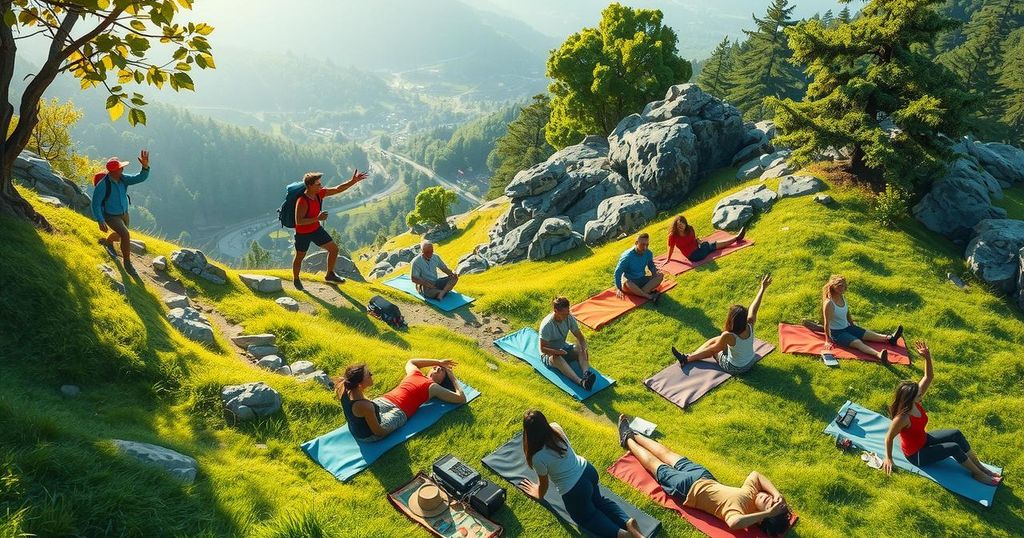Armed Attacks Kill 28 in Northern Nigeria

- Armed attacks in northern Nigeria resulted in 28 deaths recently.
- At least 11 fatalities occurred during an assault on Malam Fatori.
- In Sokoto State, 17 individuals were killed during afternoon prayers.
- Hiking clubs in Abuja offer a safe space for outdoor enthusiasts.
- The Naija Adventurers group seeks to address the lack of mapped trails.
Recent Armed Attacks Leave 28 Dead in Nigeria
In yet another tragic incident in northern Nigeria, 28 individuals lost their lives due to armed attacks attributed to violent groups. Military sources, including Lieutenant Colonel Olaniyo Osoba, spokesperson for the Multinational Joint Task Force (MNJTF), report that the onslaught occurred in two separate situations. The first attack, on Thursday in Malam Fatori near the Niger border, resulted in the death of at least 11 people. The armed men targeted a camp for internally displaced persons before Nigerian forces could re-establish security.
Grim Reality Amidst Nigeria’s Outdoor Adventure Scene
Separately, in Sokoto State, 17 individuals were killed in Kwalajiya village during a religious gathering for the afternoon prayer. These grim incidents have raised alarms about the ongoing violence in the region linked to jihadist groups and kidnappings. Amidst these tragedies, life in Nigeria continues, particularly in urban centers like Abuja where adventure seekers are taking hikes into nearby nature.
Urban Hikers Seek Security and Connection to Nature
A tremendous 400-plus crowd embarked on a 1.5-mile hike organized by Naija Adventurers, an outdoor group founded to promote safe hiking experiences in the area. Adebayo Babatunde, the founder, expressed disappointment at the lack of government support for outdoor activities despite Abuja’s scenic beauty. He lamented how most trails are not properly mapped, which could deter many potential nature enthusiasts from enjoying the outdoors safely. Participants like Jeremiah Makpum noted that hiking helps them stay fit and, importantly, feel secure among fellow adventurers, especially given the climate of ongoing violence in Nigeria. Security for the hike included plain-clothes volunteers ready to intervene in case of any incident, which added an unusual but necessary precaution to the outing.
Community Adventure Reflects Deeper Connection to Nature
Throughout the hike, participants mixed fitness with festive liveliness. Afrobeats music filled the air as groups engaged in spontaneous dance activities. Vendors, too, enhanced the colorful atmosphere, selling drinks and accessories. Yet, the reality remains stark, with many urban Nigerians increasingly disconnected from their rural roots. Kingsley Uche, from Kay Hikers, emphasized the range of undiscovered natural beauties like waterfalls and farms waiting to be explored. However, he underscored that government support is woefully lacking, especially as existing national parks are often in disrepair, and hiking trails are seldom properly identified or marked. Adeyemi is in discussions with governmental tourism bodies to rectify this issue, hoping for improved hiking area mapping in the future. Overall, hiking has become more than just an outdoor activity; it represents a bridge back to nature for many amidst the complexities of urban life.
The recent armed attacks in northern Nigeria bring attention to the ongoing violence, as 28 lives were lost in two assaults. While this stark reality weighs heavily on communities, urban adventurers in areas like Abuja strive to reconnect with nature despite challenges of safety and lack of governmental support. Hiking groups emphasize the importance of connection, adventure, and community in troubled times, showing that despite adversity, the human spirit continues to seek out beauty and companionship in the outdoors.







